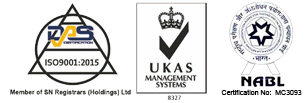MRCP
A magnetic resonance imaging (MRI) is a type of noninvasive test that uses magnets and radio waves to create images of the inside of the body. The magnets and radio waves create cross-sectional images of the abdomen, which allows doctors to check for abnormalities in the tissues and organs without making an incision. The technology used in an MRI allows doctors to examine soft tissues without bones obstructing the view. Your doctor may order an abdominal MRI scan if you had abnormal results from an earlier test such as an X-ray, CT scan or blood work. Abdominal MRI scans are used for a variety of reasons. Your doctor will order an MRI if they suspect something is wrong in your abdominal area but can’t determine what through a physical examination. Your doctor may want you to undergo an abdominal MRI scan to:
- examine blood flow
- examine your blood vessels
- investigate the cause of pain or swelling
- examine lymph nodes
Preparation of MRI Abdomen
This test can be done only on an empty stomach. The MRI technician should be informed if you have any inner ear implants, artificial joints, a defibrillator or pacemaker, particular types of heart valves, vascular stents, brain aneurysm clips. The staff will ask you to remove anything that contains metal, including jewelry, sunglasses or any electronic gadgets. All these interfere with the MRI machine’s ability to produce a clear image. Braces and dental fillings will typically not pose a problem, but pens, pins, and certain dental appliances can interfere. In the case of implants and pacemakers, those items can stop working properly due to an MRI’s magnetic field. You will be asked to wear a hospital gown or clothing that doesn’t contain metal fasteners. Lastly if you’re pregnant, kindly inform the staff and the scan may be postponed if not emergency in nature.
The technician will ask you to lie on your back on the bench and will give you a blanket or pillow. The technician will control the movement of the bench using a remote control from another room, and will communicate with you over a microphone. MRI machines are very sensitive to movement, so it’s important that you stay very still. The technician may also ask you to hold your breathe for a few seconds as pictures are being taken. The entire process takes 30 to 45 minutes. The scanning will be loud in nature and these banging noises are normal with the machine. There is no need of worrying or fear. You can also ask for ear plug if noise is more than bearable limits. There are no risks associated with the MRI itself. There is a very slight chance that you will have an allergic reaction to a contrast solution. Tell the medical staff if you have decreased kidney function; it may not be safe to use contrast solution if this is the case. Once the images are produced, a radiologist will analyze your MRI images and your results will be available


